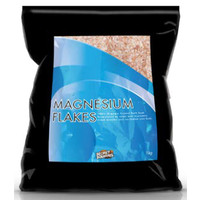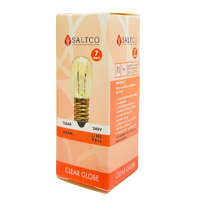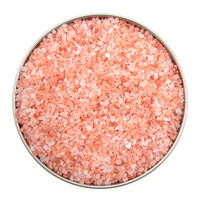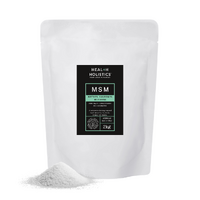Health Benefits of Magnesium
Author: Saltco Australia Date Posted:28 December 2017

Do you have enough magnesium in your diet?
You’ve probably heard this question before. If not, you could likely replace the word “magnesium” with “iron” or some other element that seems like it might not belong in your body. And in reality, there’s a lot of truth to these arguments: your body is rife with a bunch of different chemicals in a certain, finely-tuned balance. But what’s so special about magnesium, you might ask? What are the benefits to having that in your diet?
Well, it’s a long story. As with anything, the more you know about something, the most you see its value. So let’s start with the most basic question we can ask: what IS magnesium?
In short, it’s a type of metal. On the periodic table, it’s on the second column from the left, categorized as an alkaline earth metal. It shares this column with five other materials, including beryllium and calcium, and all six metals have the same properties: they all have a shiny, silver-white color, they all have similar structures at an atomic level, and they all have fairly low reactivity temperatures (melting and boiling points).
Magnesium is found naturally: as far as we can tell, it’s one of the most abundant elements in the universe. It can be found in dying stars when helium nuclei are added to the carbon nucleus of an atom. When the star collapses, this magnesium explodes out into space, and can be part of the formation of new star systems. This is, of course, how magnesium came to be the most eighth most common element on Planet Earth.
It’s commonly found not only in the Earth’s crust and mantle, but also in seawater...and in various metallic objects, as it’s the third-most commonly used metal. However, it’s also a common element in biology, one which has many benefits.
In Epsom in the early 1600s, a farmer who had fed his cows water from a certain well noticed that the cows objected to the water’s bitter taste, but the water healed minor injuries more quickly. The water, when boiled, revealed a crumbly white substance that was marketed as Epsom salts, and later identified as magnesium sulfate.
The healing properties of magnesium are symptomatic of its prominence as an essential element in every living organism. It’s normally used as a catalyst for chemical reactions – for example, ATP (the main source of energy in many cells) must bind with a magnesium ion to activate. Chlorophyll, which converts water to oxygen in plants, has magnesium at the center of its molecular structure.
Magnesium is also essential in the human body, necessary for over 300 biological and chemical reactions. In addition to its role in ATP, it is crucial to enzyme-driven biochemical reactions. Enzymes accelerate chemical reactions in the human body, and like most vitamins, magnesium’s job in this is mainly to regulate these enzymes so the biochemical reactions can flow smoothly.
Magnesium is also necessary (among other chemicals, of course) to break down glucose and fat, produce protein and antioxidants, regulate cholesterol, and even create DNA and RNA. In almost all these reactions, magnesium acts as a regulating co-factor, and even a small unbalance in the body’s magnesium levels can create huge impacts on a person’s health.
The first thing to note is that unlike most other hormones, which the body itself can produce, magnesium does not occur naturally in the human body. So how do we get enough magnesium in our diet? Well, as with most other vitamins, from foods close to nature. Dieticians recommend legumes and nuts, whole grains (ie. brown rice) and leafy green vegetables, because of the chlorophyll amounts in all these. However, you’re not likely to get your recommended daily serving of magnesium by these alone, especially given the way the food industry is headed.
The world population is beginning to show a magnesium deficiency, due to several factors. This is partly due to the changes in chemicals that farmers use to modify their crops (think GMO’s), changes in nutrients in the soil, and changes in eating habits in the past fifty years. In short, when the fast food industry took off, focus took place on cheapness and flavor, rather than nutrients. As food was mass produced, the fresh, “homemade” aspect of food was lost, and people started to get much less magnesium than the recommended amount as a result.
As a result of this, magnesium deficiency as a clinical condition has become more widespread. There is no one specific set of symptoms – it varies depending on who you talk to – but the symptoms depend on the severity of the deficiency. For example, a mild magnesium deficiency might affect the muscles (ie. cramps, spasms, general weakness) and the brain (confusion, insomnia, poor memory) while the effects of a more serious deficiency would spread to the circulatory (heart changes) and respiratory (breathing problems) systems. And because magnesium plays a key role in carbohydrate metabolism, its deficiency can also create problems with insulin.
Diagnosing a magnesium deficiency is commonly disputed, and can be hard to determine, as the total amount of magnesium in the bloodstream is around 1%. Because of this, a standard blood test can’t be made, so a serum magnesium test of the blood can usually determine severe magnesium deficiency.
So how do we treat it? The answer seems pretty straightforward: eat more magnesium. However, as I mentioned above, you most likely won’t get a recommended amount of magnesium by simply eating foods that have a lot of magnesium in them. In these cases, doctors prescribe magnesium salts, which are ingested orally in the form of salts. Those Epsom salts from earlier in the article? They were the first example of this.
By now we’ve covered the benefits of magnesium in your diet, the specific benefits it has on your body, and the downfalls, of a magnesium deficiency. As with countless other vitamins and chemicals, magnesium is simply a small part of a much bigger machine – the human body. However, it’s also a great example of how important even a small amount of something can be to the bigger picture.











